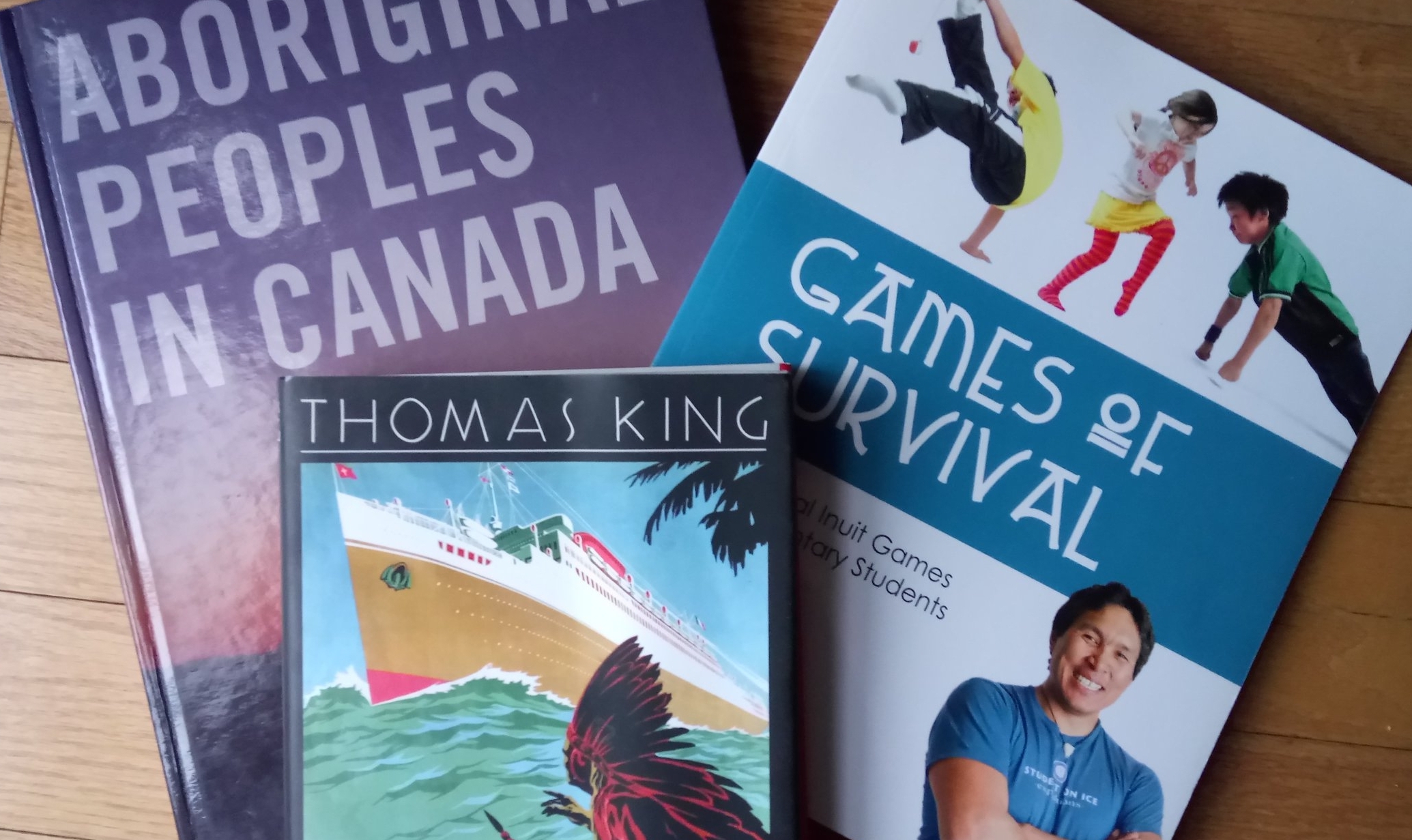Junior Level Resources - Shannen and the Dream for a School by Janet Wilson
One question that emerged in many of my presentations this past month was, how can my students see Indigenous peoples as something other than victims? In response, I suggest highlighting the resilience and resistance of Indigenous peoples, especially young people, and bringing their stories into the classroom.
Part non-fiction novel, part scrapbook, Shannen and the Dream for a School, tells the true story of Shannen Koostachin (Mushkegowuk/Swampy Cree - Attawapiskat First Nation) one of the young people who fought for a new school in her home First Nation.
The book includes recent and historical images of Shannen and her family, related newspaper clippings, a timeline and a historical section at the back.
Questions to Consider
- How can my students come to see Indigenous peoples as more than victims or people to be pitied?
- Where are opportunities to focus on Indigenous resistance and resilience?
Interview with High School Teacher Laryssa Gorecki
Click here to download my interview with Laryssa!
This month I conducted my first interview with Laryssa Gorecki, an English teacher at James Cardinal McGuigan Catholic High School in Toronto. She's been incorporating Indigenous content into her classroom in the West end of the city, and finding that her students from all different backgrounds have points of connection to the material.
Laryssa speaks to us about her unit, and addresses questions any teacher might have, including navigating her role as a relatively new learner in this area.
What does Laryssa teach?
The unit on Truth and Reconciliation examined the implications of using arts-based activities, including music, drama, and picture books, as a means to build student capacity for intercultural understanding, empathy, and mutual respect. Through an aesthetic approach, students actively engaged with the themes found in various artwork, songs, and narratives by Indigenous authors and artists. The unit culminated with a project expressing cognitive and aesthetic growth in our student community.
Resources Laryssa uses:
Students created final projects which displayed their learning in the unit.
- Academic: Integrating Academic Perspectives into the School Curriculum Dr. Yatta Kanu
- Strength and Struggle: Perspectives from First Nations, Inuit, and Metis Peoples in Canada & accompanying teacher resource - McGrawHill
- Dreaming in Indian edited by Lisa Charleyboy & Mary Beth Leatherdale
- Say Magazine
- The work of Kathleen Gould Lundy such as Teaching Fairly in an Unfair World.
If you have feedback or questions for Laryssa, you can contact her via email or follow her on twitter @laryssagorecki1
The Highlight Reel - April 2017
Instead of looking at one issue in-depth, I decided to include news and events this month that caught my eye, and could be of use in your teaching!
INDIGENOUS FOOD WAYS
In the Globe and Mail, food historian Dr. Ian Mosby published an article, "We are what we ate: Canada's history in cuisines" which begins and ends with a look at First Nations staples, and notably, how they are tied to Canadian colonial tactics and reconciliation. Dr. Mosby is known in part for his work confirming that nutrition experiments were conducted on the children in Residential Schools.
RICHARD WAGAMESE
On March 10, celebrated author Richard Wagamese (Ojibway, Wabaseemoong First Nation, Treaty Three) passed away.
- Here is a list of his books
- View a speech he gave in 2015 about his writing craft when accepting the Matt Cohen Award: In Celebration of a Writing Life.
- Read Wagamese's entry in "Speaking My Truth" a project by the Aboriginal Healing Foundation.
INDIGENOUS MUSIC
A Tribe Called Red, Tanya Tagaq, and the Black Bear Singers opened the Juno awards on April 2, with one of the most exciting performances that night. A Tribe Called Red are known for their "electric pow wow" style and Tagaq (Inuit - Iqaluktuutiaq/Cambridge Bay) has won the Polaris Prize for her music which features her throat singing. The performance brings metaphor and political statement together, and blends traditional and contemporary styles.
How Do I Avoid Appropriation?
One of the most frequent questions I get from teachers is about appropriation. From what I know of my own practice, I think a lot of confusion arises because non-Indigenous peoples may not be aware of elements of Indigenous cultures that are sacred and part of spiritual practice, or understand that they are asking students to recreate ancient art forms that are passed through apprenticeship relationships.
Read more



